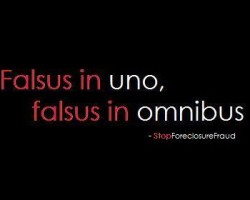
Decided on January 22, 2014
APPELLATE DIVISION : SECOND JUDICIAL DEPARTMENT
MARK C. DILLON, J.P.
JOHN M. LEVENTHAL
CHERYL E. CHAMBERS
ROBERT J. MILLER, JJ.
2012-00756
(Index No. 10439/08)
[*1]Washington Mutual Bank, respondent,
v
Oscar Holt III, appellant, et al., defendants.
Oscar Holt III, Westbury, N.Y., appellant pro se.
Stagg, Terenzi, Confusione & Wabnik, LLP, Garden City,
N.Y. (Jacqueline M. Della Chiesa and
Owen A. Kloter of counsel), for
respondent.
DECISION & ORDER
In an action to foreclose a mortgage, the defendant Oscar Holt III appeals from an order of the Supreme Court, Queens County (Cullen, J.), entered December 8, 2011, which, after a hearing to determine the validity of service of process, denied those branches of his motion which were pursuant to CPLR 5015(a), inter alia, to vacate a judgment of foreclosure and sale entered against him upon his failure to appear or answer, and pursuant to CPLR 3211(a)(8) to dismiss the complaint insofar as asserted against him for lack of personal jurisdiction.
ORDERED that the order is reversed, on the facts, with costs, and those branches of the motion of the defendant Oscar Holt III which were pursuant to CPLR 5015(a) to vacate the judgment of foreclosure and sale and pursuant to CPLR 3211(a)(8) to dismiss the complaint insofar as asserted against him for lack of personal jurisdiction are granted.
The plaintiff commenced this action against Oscar Holt III, among others, to foreclose a mortgage secured by a multiple dwelling (hereinafter the premises) owned by Holt and situated in Corona, Queens. To assure that those tenants who were in possession of residential units at the premises would be bound by any subsequent entry of a judgment of foreclosure against Holt (see Nationwide Assoc. v Brunne, 216 AD2d 547, 547), the plaintiff allegedly attempted to join those tenants as defendants in this action. The plaintiff’s process server testified at a hearing that he
attempted to serve process upon several tenants residing in apartments at the premises. The process server further testified that he served copies of the summons and complaint upon Holt at Holt’s residence in Westbury by employing the “affix and mail” method (see CPLR 308[4]), after unsuccessfully attempting personal delivery and service pursuant to CPLR 308(2) on four prior dates.
This Court possesses authority to review a determination rendered after a hearing that is as broad as that of the hearing court, and may render the determination it finds warranted by the facts, taking into account that, in a close case, the hearing court had the advantage of seeing the witnesses (see Northern Westchester Professional Park Assoc. v Town of Bedford, 60 NY2d 492, 499; Lopez v DePietro, 82 AD3d 715, 716; American Home Mtge. v Villaflor, 80 AD3d 637).
Although, as a general matter, we do not lightly disturb findings that are based upon conflicting evidence and implicate the credibility of witnesses, the evidence adduced at the hearing [*2]warrants a reversal of the Supreme Court’s determination that process was properly effected upon Holt (see Matter of Chemical Bank v Davis, 133 AD2d 756; Aronauer v Ohl, 80 AD2d 592). Here, there was evidence that, of the five people whom the process server had allegedly contacted on various dates at the premises owned by Holt, one had moved out of the premises prior to the time in question, three had been earlier evicted, and one established through documentary evidence that he was physically in Atlanta, Georgia, on business when the process server claimed the witness was in Queens. Where a witness has given testimony that is demonstrably false, we may, in accordance with the maxim falsus in uno falsus in omnibus, choose to discredit or disbelieve other testimony given by that witness (see DiPalma v State of New York, 90 AD3d 1659, 1660; Accardi v City of New York, 121 AD2d 489, 490-491; see generally People v Becker, 215 NY 126, 144). Under the circumstances presented here, we conclude that the process server’s testimony with respect to the affix-and-mail service allegedly effected upon Holt in Westbury should not be credited or believed.
Viewing the evidence in its totality, the plaintiff failed to meet its burden of proving by a preponderance of the evidence that jurisdiction over Holt was obtained by proper service of process (see Bankers Trust Co. of Cal. v Tsoukas, 303 AD2d 343). Accordingly, the Supreme Court should have granted those branches of Holt’s motion which were pursuant to CPLR 5015(a) to vacate the judgment of foreclosure and sale entered against him and pursuant to CPLR 3211(a)(8) to dismiss the complaint insofar as asserted against him for lack of personal jurisdiction
The appellant’s remaining contentions have been rendered academic.
DILLON, J.P., LEVENTHAL, CHAMBERS and MILLER, JJ., concur.
ENTER:
Aprilanne Agostino
Clerk of the Court
© 2010-19 FORECLOSURE FRAUD | by DinSFLA. All rights reserved.



